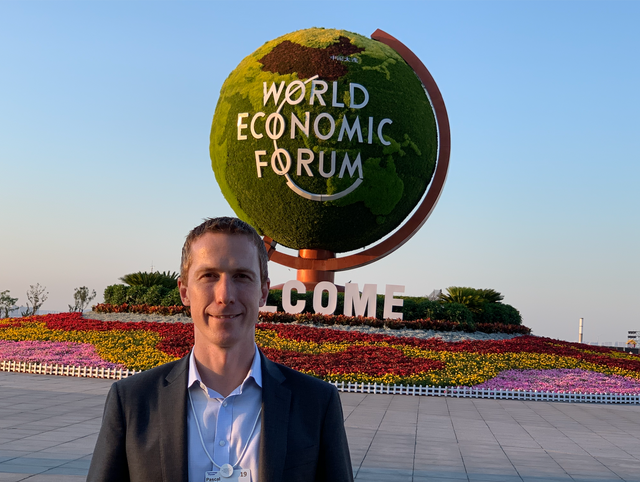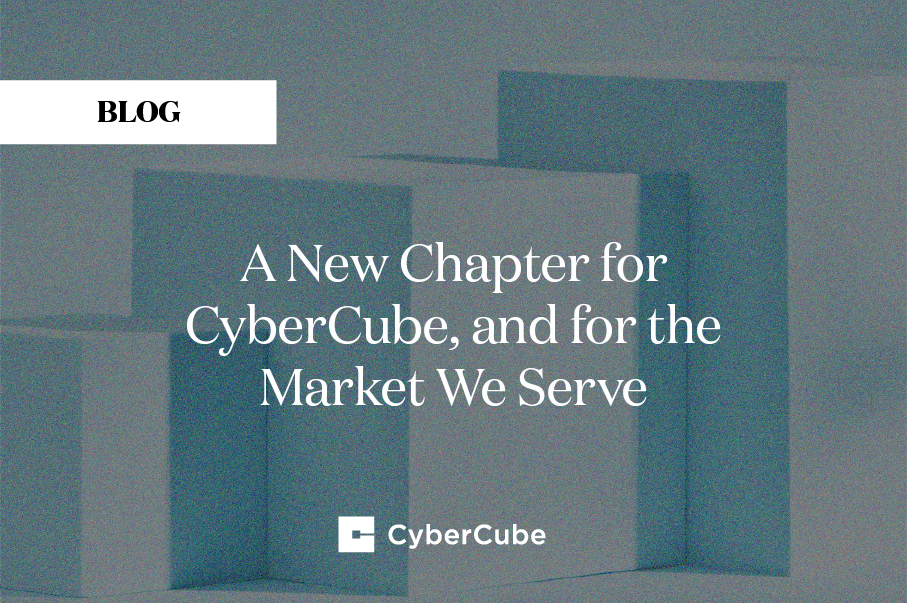CyberCube recently received the honor of selection as a “Technology Pioneer” by the World Economic Forum. This designation is intended for the next generation of companies that could “shape solutions to global challenges and improve society for years to come”.
The main short-term implication was that I was invited to attend and speak at the “Meeting of New Champions”, also known as “Summer Davos”, in Dalian, China.
Having spent the last 3 days in China with political, academic, civil society and business leaders from over 100 countries, I wanted to share some reflections on my engagement with a fascinating (albeit skewed) cross-section of leaders from China and across the globe. Here are six of my most striking and unexpected takeaways:
1. The US-China trade war was rarely a long-term concern to participants: For a meeting of Chinese and global business leaders, I would have thought that the topic would be weighing more heavily on the minds of the business community. Almost without exception the sentiment in panels and side discussion was that the trade war would pass. The feeling was strong that long-term prospects for US-China trade remained robust and an equilibrium would be found between the two economies, even if that equilibrium would always be temporary.
2. The most talked about topic across panels was not about business …it was about climate change: Leaders of all stripes across various industries would bring conversations back to changing climate patterns, even on seemingly unrelated topics. In speeches from business, academic and political leaders the concern for the future of the global environment was overwhelming and the confidence in clear paths to political solutions was not.
3. Cyber risk was a recurring agenda item that pervaded every day: It is no surprise given its rise to prominence in World Economic Forum risk reports that cyber was a top priority for practitioners of technology and non-practitioners alike. The agenda was so full of cyber panels and hub sessions that one could almost devote an entire schedule at “Summer Davos” to the topic. There were few agenda item topics that could have created a conference within themselves besides cyber.
4. Opening of the Chinese domestic economy: To my surprise, in side conversations, many Chinese business leaders saw current trade tensions as a potential source for good in the Chinese economy to encourage positive reforms that might not otherwise be possible without external pressure. Having expected a universally negative sentiment towards the current US situation, the reality on the ground from Chinese participants was nuanced. The sentiment among Western business leaders about the situation lacked such nuance. In addition, it was striking to listen to a speech by Li Keqiang, Premier of China, and hear of fiscal restraint, tax reductions and economic policies that would feel right at home among many western economist. In his speech, he made a surprise announcement (to audible cheers in an otherwise subdued crowd) that China would be removing ownership limits in the financial sector in 2020, which is earlier than scheduled. Given the ‘direction of travel’ in Western economies on internationalization, the difference in rhetoric is stark
5. The 4th industrial revolution is a topic embraced across industries and geographies: Among participants in the event, the sense that internet connected technologies, the explosion of data and the emergence of advanced artificial intelligence would transform the global economy was pervasive. The sense was often that changes to the global economy in the next generation won’t be incremental but more revolutionary and few sectors will be immune to transformational change
6. Insurance has a key role to play in enabling the 4th industrial revolution: I was fortunate enough to deliver a talk and Q&A on the role of insurance in the 4th industrial revolution and insurance was a topic of much interest. Although the challenges to the insurance industry are immense, if insurers can live up to the promise of helping society understand, mitigate and transfer the risks of internet-connected technologies the potential is immense. The insurance industry has the opportunity to play an instrumental role in enabling society to thrive as we embrace new technologies, reap the benefits of those technologies, and share in the downsides when things go wrong.
I had many unexpected takeaways from “Summer Davos” but the thing that was not a surprise was the important role the P&C insurance industry could play in enabling the next wave of economic and technological growth. As internet-connected risks pervade all aspects of economy and society over time, insurance can play a critical role in actualizing the 4th industrial revolution.




